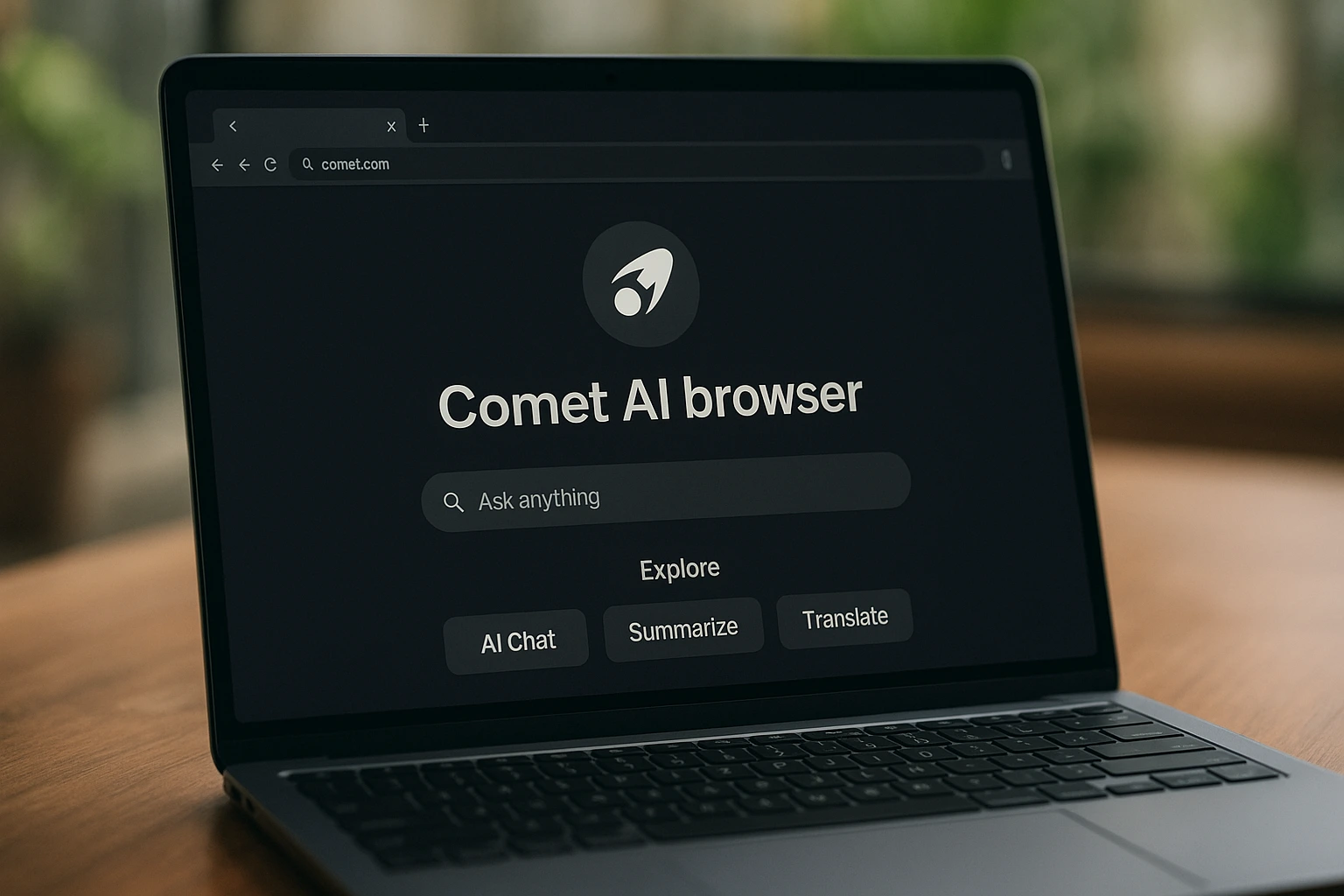Perplexity, the artificial intelligence company behind the popular Perplexity AI search assistant, has officially launched its Comet AI browser to the public.
The company confirmed this week that Comet is now free and available to everyone as a desktop browser, marking a significant step in the growing competition among AI-powered web browsers.
Initially introduced during the summer, Comet was previously restricted to paid subscribers or users on a waitlist. Now, anyone can download and explore the AI enhanced browsing experience, which integrates real time search, summarization, and conversational features directly into the browser interface.
We designed Comet to redefine how people interact with information online,” said a Perplexity spokesperson in a statement. “By combining AI search, context aware summaries, and a streamlined user interface, Comet brings knowledge discovery into the browser itself.”
Perplexity’s expansion into browser technology comes amid a surge in AI assisted browsing tools. Tech giants like Microsoft and Google have embedded AI into their existing browsers Edge with Copilot and Chrome with Gemini while newer entrants like Arc and Brave have experimented with their own AI features.
Comet differentiates itself by tightly integrating Perplexity’s conversational AI engine into the browsing experience.
Instead of relying solely on traditional search engines, users can ask questions directly in the browser and receive summarized, sourced answers without leaving the page.
When Comet first launched in mid-2024, access was limited. Early adopters required a Perplexity Pro subscription or an invite code. The company cited testing and infrastructure readiness as reasons for the restricted rollout.
The initial invitation only phase allowed us to refine Comet’s AI capabilities and ensure a stable experience before scaling to a broader audience, the spokesperson added.
Analysts view Perplexity’s move as a direct challenge to established AI ecosystems from OpenAI, Google, and Microsoft.
“AI-native browsers like Comet represent the next evolution of web navigation,” said Dr. Laura Kim, a technology analyst at the Center for Digital Innovation.
They combine traditional browsing with AI assistance, enabling users to process information more efficiently. This could shift how search traffic flows and how users consume content.
Kim added that Comet’s free availability could significantly boost adoption among users seeking alternatives to mainstream browsers.
Meanwhile, independent tech researcher Jason Reed noted that integration is key. “The success of AI browsers depends on how seamlessly AI features blend into the user experience,” Reed said.
If Comet can deliver reliable summaries and intelligent suggestions without overwhelming users, it stands a strong chance in a competitive field.
According to data from StatCounter, Google Chrome currently holds over 60 percent of the global desktop browser market, followed by Edge and Safari. Emerging AI browsers, though still niche, have shown steady growth among early adopters.
Perplexity’s user base has reportedly grown rapidly since the company’s launch in late 2022. Market research firm TechScope estimates that monthly active users of Perplexity’s AI search platform exceeded 20 million in 2025.
Analysts expect the Comet browser to accelerate that growth by embedding AI functionality directly at the browsing level.
By contrast, Microsoft’s Edge Copilot and Google’s Gemini in Chrome rely on external AI systems layered over traditional browsing. Comet’s design, by comparison, integrates AI as a core feature rather than an optional add on.
Early users welcomed the broader release, citing the browser’s simplicity and responsiveness. “I’ve been waiting for months to try Comet,” said Daniel Brooks, a software developer in San Francisco.
It feels like a mix of a search engine, an assistant, and a browser all in one. The AI summaries save a lot of time when researching. Others expressed curiosity about privacy and data handling.
“I like the convenience, but I’d like more transparency on how my browsing data is processed,” said Maria Lopez, a university student in Austin. “AI tools are great, but users need to understand what’s happening behind the scenes.”
Perplexity has emphasized that Comet uses anonymized data for improving AI performance and gives users control over their settings.
We’re committed to transparency and user trust, the company said in a statement. “Comet is designed with privacy first principles, and users can manage or opt out of data sharing features.”
Industry observers predict the AI browser market will expand rapidly over the next two years as companies race to integrate intelligent assistants into everyday browsing.
“AI integration is no longer optional; it’s becoming an expectation,” said Kim. “We’ll likely see more companies developing AI native browsers or partnerships to stay competitive.”
For Perplexity, the Comet rollout may signal broader ambitions beyond search. Analysts speculate the company could introduce mobile versions and enterprise integrations, positioning Comet as a productivity platform rather than just a browser.
Reed believes adoption will depend on user trust and performance. “If Comet can deliver accurate, unbiased answers and maintain speed, it could establish itself as a serious alternative to Chrome and Edge.”
The public release of Comet marks a major milestone for Perplexity’s AI ecosystem, opening access to a wider audience eager to test AI powered browsing.
While challenges remain particularly around user trust, data privacy, and market competition Comet’s integrated approach to AI assistance may set a new standard for how users navigate the web.
As AI continues to reshape digital experiences, Comet’s launch underscores a broader trend the merging of search, browsing, and intelligent assistance into a single, seamless platform.
